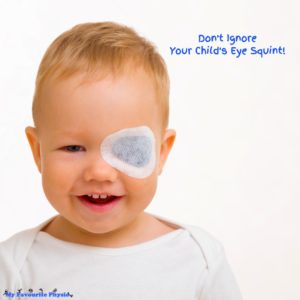13 Oct Wondering if you need to do something about your child’s eye squint or will they just grow out of it?

️Eye squint, also known as strabismus is estimated to be around 2-4% in the pediatric population. It’s more common in infants and young children, and the prevalence may decrease with age. The condition can occur in various forms, such as esotropia (inward turning of the eyes), exotropia (outward turning of the eyes), and hypertropia (vertical misalignment).
Some children may develop strabismus as a result of various factors, including genetics, refractive errors, muscle imbalances, or other underlying eye conditions. Early detection and intervention are crucial because untreated strabismus can lead to amblyopia (lazy eye) and affect visual development.
Treatment for strabismus, depends on the underlying cause and severity of the condition. Here are some common approaches to managing and treating eye squint:
1. Glasses or Contact Lenses: In some cases, the use of corrective lenses may help straighten the eyes, particularly if the squint is related to a refractive error (such as nearsightedness or farsightedness).
2. Vision Therapy: Vision therapy involves exercises and activities designed to improve eye coordination and control. It is often used for individuals with accommodative esotropia or convergence insufficiency.
3. Eye Patching: Patching is a common treatment for amblyopia (lazy eye), which can be associated with strabismus. Patching the stronger eye helps improve vision in the weaker eye.
4. Prism Lenses: Prism lenses can be prescribed to help align the eyes by altering the way light enters them.
5. Botox Injections: Botox injections may be used in certain cases to weaken or relax specific eye muscles, helping to reduce the severity of the squint.
⚕️6. Surgery: Surgical intervention is often considered for more severe cases of strabismus, especially when non-surgical methods prove ineffective. Surgery involves adjusting the tension of the eye muscles to improve eye alignment.
If you are concerned about your child’s eye squint, speak to your family doctor or Paediatric Ophthalmologist today.
